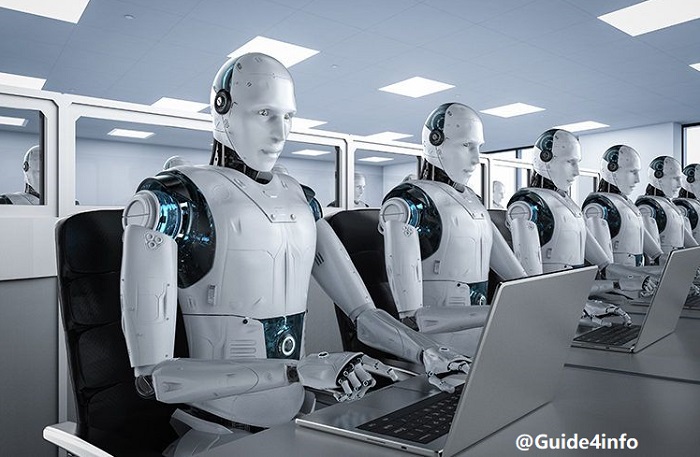The worldwide IT industry has been revitalized by ChatGPT. Which is the introduction of a new branch of artificial intelligence (AI). Will strict restrictions prevent humans from losing control when billions of dollars are invested in AI startups?
The race for artificial intelligence (AI) is currently in full swing. After ChatGPT’s debut in November of last year. Which is a revolutionary content creation tool developed by research and development firm OpenAI. Google and Alibaba, two more internet behemoths, have rushed to release their own ChatGPT versions.
Tens of billions of dollars are currently being invested by investors from Shanghai to Silicon Valley in firms that focus on so-called generative AI. Which some analysts believe might lead to the emergence of a new dot-com bubble.
There are worries that millions of occupations worldwide might be replaced by technology. And that technology may even start governing humans, given how quickly algorithms replace humans in the creation of high-quality literature, software code, music, film, and photographs.
But even Tesla CEO Elon Musk, who has frequently cautioned about the risks of AI. He declare his intentions to introduce a ChatGPT competitor.
Must Read: Best MLOP’s Courses
ChatGPT sets record for fastest growing User base
Businesses and institutions have rapidly learned how to accommodate AI simply into operations like customer support, marketing, and software development. Analysts predict that the early adopters’ excitement will have a significant snowball effect.
According to David Foster, cofounder of London-based AI and data firm Applied Data Science Partners, “the next two to three years will define so much about generative AI.” “We will discuss it in the same manner that we speak about the internet. how it affects everything we do as a species as humans.”
Foster emphasized how generative AI is being included into products businesses already own, like Microsoft Office. So they can reap the benefits of the technology without having to make substantial upfront expenditures.
Companies Will Spend $50 Billion On Artificial Intelligence
According to research released by Deutsche Bank last month, corporate spending on artificial intelligence (AI) has increased about 30-fold since 2013 and by 150% since 2019 to reach almost $180 billion (€164 billion) globally. By the end of the previous year, there were around 350,000 public AI projects, and in 2021, more than 140,000 AI-related patent applications made. This number will be huge in incoming years.
Startups don’t have to reinvent the wheel when it comes to existing ideas. Instead, they may concentrate on modifying the present generative AI systems for specialized applications like gaming, smart finance, and cancer treatments.
“You have a new market opening up, similar to when [smartphone] app shops first open. Despite the fact that they didn’t develop the technology themselves, small startups will use it creatively.
Must Read: Machine Learning Operations
Alibaba has launched its Chat GPT Competitor – Alibaba Chat GPT
The possibility of how an authoritarian government, like Beijing, may utilize AI to further control not just its population but the rest of the globe. However, casts doubt on the East-West competition for economic supremacy. However, other people believe that this concern is exaggerated. Since Chinese policymakers are also concerned about the influence of algorithms.
According to AI researcher and MIT professor Max Tegmark, “The Chinese government has been regulating AI. Bcause they see very clearly that it could cause them to lose control.” Therefore, they’re restricting businesses’ ability to experiment widely with untested ideas.
Tegmark is more concerned about the race being waged by Western tech behemoths to advance technology past the point of general acceptance. He mentioned that the tech industry’s lobbying has made the US reluctant to enact AI legislation. A so-called AI weapons race has been repeatedly warned against, but to little avail.
Tegmark stated, “Unfortunately, that’s precisely what we have right now; business executives realize the hazards, want to behave morally. But simply can’t stop. Because the competitors will eat their lunch and their shareholders will murder them, no firm can pause alone.
The introduction of ChatGPT force policymakers to start again after two years of work on the Artificial Intelligence Act. Which suppose to be implemented this year.
How will AI Impact Society in the Future?
Due to risk-averse investors, Europe is now finding it difficult to compete with its US and Asian IT rivals in the generative AI sector.
The same old tale. Europe is falling behind, according to Ramge. It claims once more that it will be able to catch up despite not having anticipated this tendency.
Ramge singled out two possible leaders: the Heidelberg-based firm Aleph Alpha. Which has raised just $31.1 million to far compared to OpenAI’s $11 billion. And a German initiative to build a European AI infrastructure known as LEAM.
What Europe is unable to do is convert knowledge from universities into quickly expanding startups, or “unicorns,”. Which ultimately have the ability to introduce the new technology to the rest of the globe.
Follow us on all social media platforms and get all the updates on regular basis.
- Follow us on LinkedIn : Guide4info – Best Career Platform
- Follow us on Facebook: Guide4info
- Subscribe to our YouTube Channel: Guide4info
Also Read:
